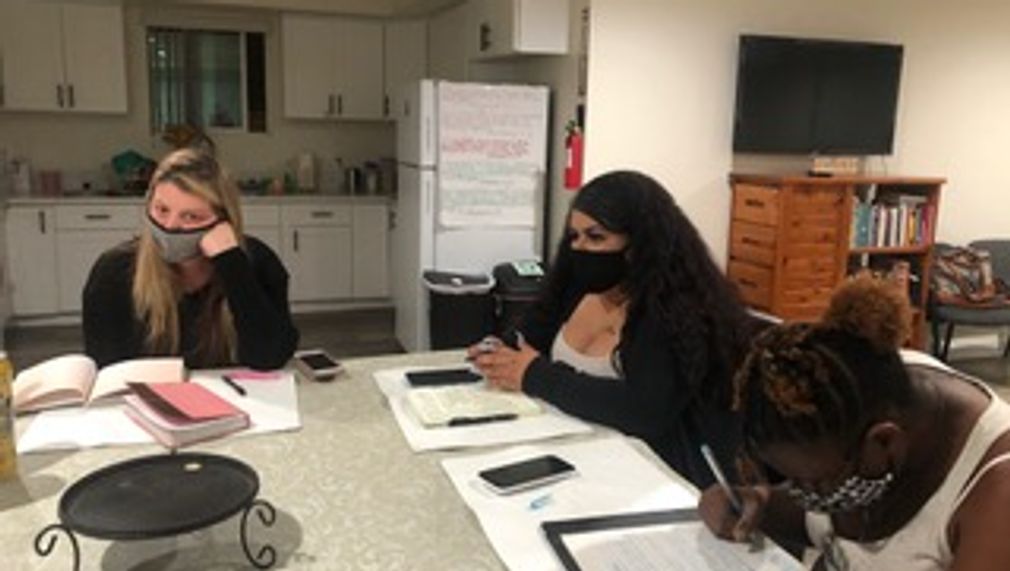Warmhearted Education Helps Us Grow (WE HUG)
This grant will support a transitional housing and recovery program for homeless women, many of whom are survivors of trauma, substance abuse, and mental illness. The initiative also educates and empowers youth by raising awareness of the connections between childhood sexual abuse, neglect, justice involvement, and homelessness. Through housing, support, and education, the program aims to break cycles of trauma and promote long-term stability.

What is the primary issue area that your application will impact?
Affordable housing and homelessness
In which areas of Los Angeles will you be directly working?
South LA County of Los Angeles (select only if your project has a countywide benefit)
In what stage of innovation is this project, program, or initiative?
Pilot or new project, program, or initiative (testing or implementing a new idea)
What is your understanding of the issue that you are seeking to address?
1. The Intersection of Trauma and Homelessness
We understand that many homeless individuals, particularly women, have experienced significant trauma, such as divorce or domestic violence, childhood sexual abuse or other forms of early trauma, which often have long-term effects on mental health, self-worth, and the ability to maintain stable relationships or employment.These traumatic experiences are both causes and consequences of homelessness, creating cycles that are hard to break without targeted support.
2. Mental and Emotional Barriers
Key barriers also include low self-esteem, loss of identity or purpose, and mental health challenges stemming from unhealed trauma
3. The Role of Employment and Purpose
We emphasize the value and necessity of work for financial stability, rebuilding self-worth, providing structure and motivation, and fostering a sense of contribution and community
4. Holistic, Strengths-Based Approach
Our holistic approach provides housing as a base for stability
Describe the project, program, or initiative this grant will support to address the issue.
This grant will support a trauma-informed outreach and healing initiative designed to engage youth affected by homelessness, abuse, and systemic neglect in Los Angeles. Our program meets young people where they are—whether in homes, schools, shelters, or facilities—through both virtual and in-person sessions. The goal is to create a safe, judgment-free space where youth can unload the emotional "garbage" they have been carrying, often silently, in their minds and hearts.
At the core of our initiative is a storytelling-based curriculum that fosters healing through creative self-expression. By encouraging participants to respond through art, music, dance, rap, silence, or one-on-one conversations, we help unlock internalized trauma and support emotional release in a way that feels natural and empowering to each individual.
We affirm every young person’s story, emphasizing that they are heard, valued and loved, in spite of their past mistakes, with a deep understanding of the pain behind them. Our facilitators are trained to listen actively, empathize deeply, and respond with compassion and accountability.
Ultimately, this initiative aims to rebuild trust between youth and the adults/institutions around them, foster emotional literacy and mental well-being, boost self-esteem and self-worth through creative validation, and break cycles of silence and shame that contribute to trauma and homelessness. Therefore, we empower youth to transform their pain into purpose.
Describe how Los Angeles County will be different if your work is successful.
If our work is successful, Los Angeles County will see a profound transformation in the lives of its most vulnerable youth. Instead of feeling isolated, forgotten, or defined by their past traumas, they will be inspired to envision—and actively pursue—a viable, meaningful future.
Youth who once struggled with hopelessness, substance abuse, or academic disengagement will begin to stay in school, explore trades, and set personal and professional goals. With consistent emotional support and encouragement, they will learn to turn to faith, therapy, and community instead of destructive behaviors. They will evolve from feeling like burdens to society to becoming engaged, productive, and empathetic contributors to their communities. They will be more likely to seek mental health support instead of suppressing pain, engage in creative, educational, and faith-based activities, and develop the resilience and self-worth needed to break cycles of homelessness, addiction, and generational trauma.
Approximately how many people will be impacted by this project, program, or initiative?
Direct Impact: 50
Indirect Impact: 500